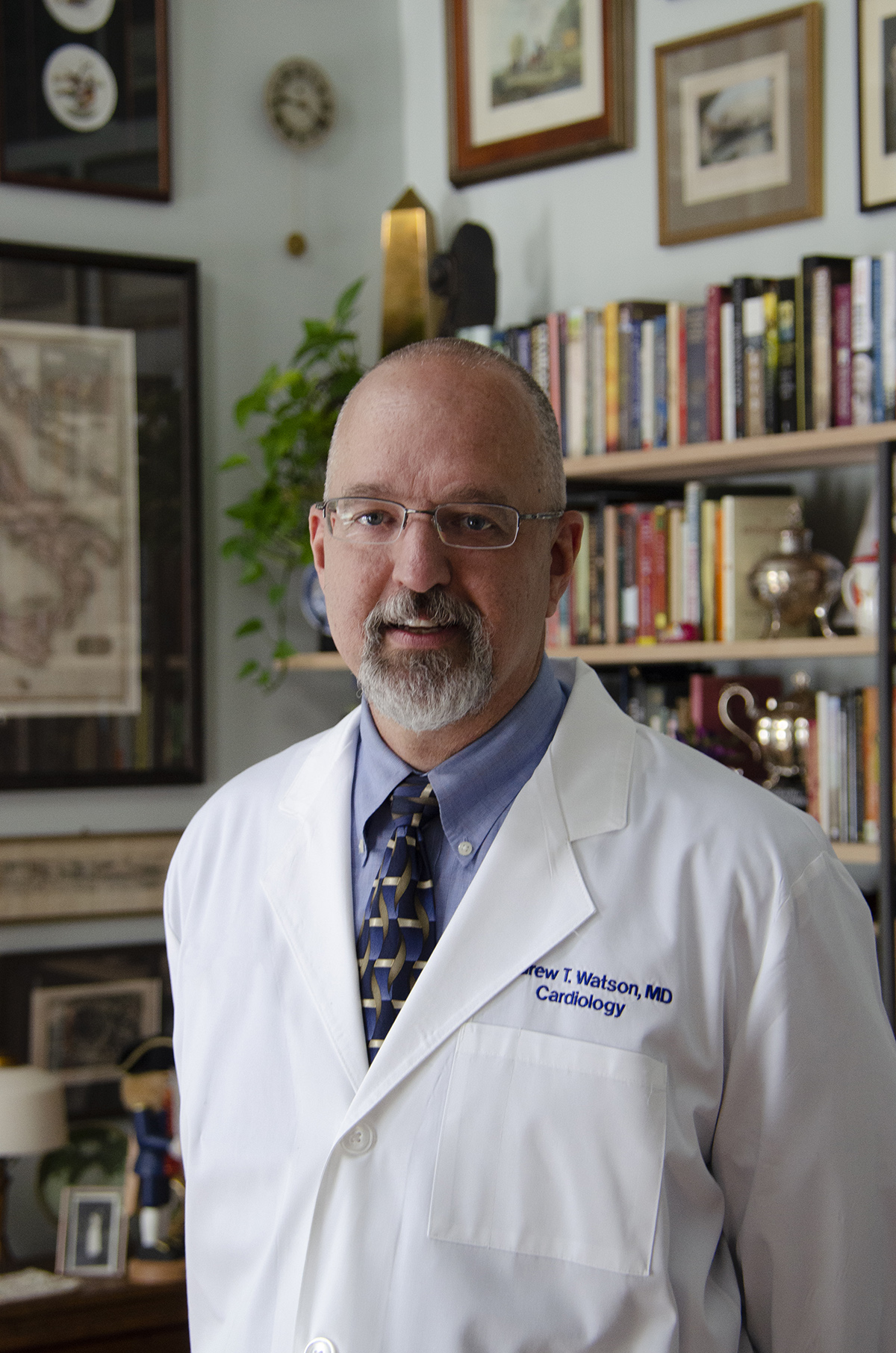Meet Andrew Watson, MD, TMA’s Newest President
April 17, 2023 Nashville, TN — At the 188th House of Delegates, Andrew Watson, MD, was officially sworn in as the 169th president of the Tennessee Medical Association. Dr. Watson, a board-certified cardiologist with St. Francis Cardiology Associates in Memphis, recently discussed priorities for his new role, his personal leadership style, and the importance of member participation entering his term.
Nashville, TN — At the 188th House of Delegates, Andrew Watson, MD, was officially sworn in as the 169th president of the Tennessee Medical Association. Dr. Watson, a board-certified cardiologist with St. Francis Cardiology Associates in Memphis, recently discussed priorities for his new role, his personal leadership style, and the importance of member participation entering his term.
Talk about your leadership style and how it translates to your role as TMA president.
Tennessee’s varied needs and issues require focused, informed responses and action. A one-size-fits-all approach does not necessarily fit this state or serve its diverse population. It is imperative that leadership recognizes the unique challenges and contributions of our regions, addressing those challenges and supporting area contributions in the most purposeful ways possible. I appreciate the value of maximizing the local medical society’s knowledge and experiences in tandem with the TMA’s statewide perspective to ensure that effective responses and decisions are made appropriately. TMA’s succession strength is also a priority matter. Recognizing younger leadership and fostering its potential is paramount to the long-term health and wellbeing of this organization.
Which issues will you prioritize during your term?
After a year serving as TMA President-Elect, the priorities I focused on as a candidate then will remain consistent. Their importance is fundamental to our work as physicians statewide and nationally. I will work to keep TMA’s focus on improved patient care, to protect and enhance the environment in which we all practice medicine, and will strive to strengthen and unify the TMA. These three priorities are interlocked—the success of one contributes to the success of all three—which benefits patients and doctors both, now and in the future.
Why should groups join TMA, and what should compel your colleagues to come on board as TMA members?
The old adage of “strength in numbers” is as valid today as it ever was. It is critical that we as physicians maintain a united position against all attempts which seek to disrupt our commitment of care to our patients or prevent us from practicing the best, science-based medicine possible. TMA and its affiliate regional medical societies jointly serve the singular purpose of protecting the environment in which we serve our patients. That protection takes unified planning, extensive communications and networking, legislative review, tracking and deliberation, and much more. This a big job by which TMA supports the investment we each have made as individuals to being physicians.
None of us entered this vocation without conscientious consideration, and we have all stayed the course because of the value we place on providing excellence in patient care. The better question might be why would a group or any physician in this state not join TMA? The small monetary investment in TMA by a member physician ensures that we can continue the advocacy needed to protect our profession and commitment to our patients.
I would go even further and suggest more physicians not only join TMA but also become active, participating TMA members. We are a stronger organization as our numbers grow, and this results in wider perspectives, additional insights and more voices represented.
You have led key discussions at recent Day on the Hill gatherings. What are your thoughts on this year’s session and the influence TMA has within the legislature?
Continued contact with legislators at both the federal and state levels is one way we as physicians serve and protect our patients. It is also how we educate non-medical lawmakers so they understand the implications and wisdom of more logical, fact- and science-based legislative decisions that can either broaden or curtail the scope of our practices. The personal accounts physicians convey to lawmakers about their practice and the impact on our patients carry a measurable, significant weight.
For example, this year’s meetings in Nashville and Washington, DC, again demonstrated the importance of physicians relating our valid concerns about the practice of medicine and the degradation of patient care that is frequently labeled as “cost savings” by the insurance or hospital industries. No lawmaker fully understands what we do and what we see on a daily basis, unless that lawmaker is a physician. Yet these are the people who establish many of the rules which restrict care and how we provide it. Our voice, our representation, must never be far away from their arena or we all suffer.


